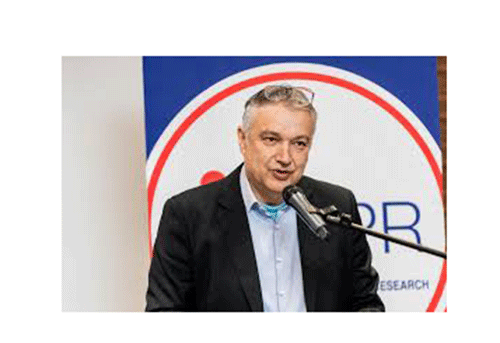Rudolf Gaiseb
The recently-launched Eco Dialogue Collective aims to ensure that Namibia’s green economy and extractive industries are developed in an inclusive, transparent and sustainable manner.
The initiative will support Namibia’s transition to a greener future by strengthening transparency and accountability in managing natural resources, namely green hydrogen as well as oil and gas. The collective aims to empower journalists, civil society actors and communities to enhance access to information, amplify the voices of affected communities, and support inclusive decision-making in the era of green transformation.
Running from 2025 to 2027, the Eco Dialogue Collective is jointly implemented by the Deutsche Welles (DW) Akademie, NMT Media Foundation, the Institute for Public Policy Research (IPPR), and the Legal Assistance Centre (LAC).
The initiative, themed ‘Empowering Media and Civil Society for a Transparent Green Future’, is funded by the European Union (EU) and the German Development Cooperation.
Speaking at the launch last Thursday in Windhoek, IPPR executive director Graham Hopwood affirmed that Namibia stands at the threshold of a major economic transformation.
“The project recognises that for all Namibians to benefit equitably from the country’s natural wealth, active public participation and oversight by civil society and the media are essential,” he said.
LAC lawyer Corinna van Wyk noted that “in pursuit of sustainable development, every voice matters. Successful dialogues can transform disparate perspectives into a cohesive vision for our country”. NMT Media Foundation executive director Zoé Titus highlighted that the project recognises that quality and public interest journalism is not a luxury, but an essential public good.
“When communities have access to accurate, engaging and relevant information, they are better able to participate in shaping the policies that affect their land, livelihoods and futures,” she underscored.
The project integrates three core components to promote transparency and accountability in the green industries: content creation, dialogue and advocacy as well as training and capacity building.
A collaborative newsroom will be established to promote high-quality, explanatory and constructive journalism on green growth, extractive industries and environmental issues. This is followed by a nationwide series of community dialogues, workshops and conferences that will offer platforms for open discussion and exchange between communities, leaders and policymakers.
Thirdly, the training programme will build the skills of journalists, civil society actors and community advocates.
Trainees will gain tools to analyse and explain green economy projects, engage in evidence-based advocacy, and use media formats to communicate environmental and energy policy issues to the public. DW’s director general Peter Limbourg said press freedom, which includes access to information, is a vital aspect of fuelling transparency in the green energy transition.
“Namibia has an abundance of natural resources and precious ecosystems that need protection. But it also faces the effects of climate change, and the question of how all Namibians can benefit from its natural wealth,” he stated.
He added: “Unbiased news and reliable facts are the basis for informed decisions. But this project goes beyond facts. This project listens to different perspectives – from communities, business leaders, policymakers and government. It is important to have this dialogue to ensure that every voice is heard”.
EU deputy head of mission to Namibia Ian Dupont added that civil society organisations and media are indispensable to democratic governance and sustainable development.
“They bridge societal divides, amplify marginalised voices and provide critical oversight, which fosters transparency and accountability,” he noted.



